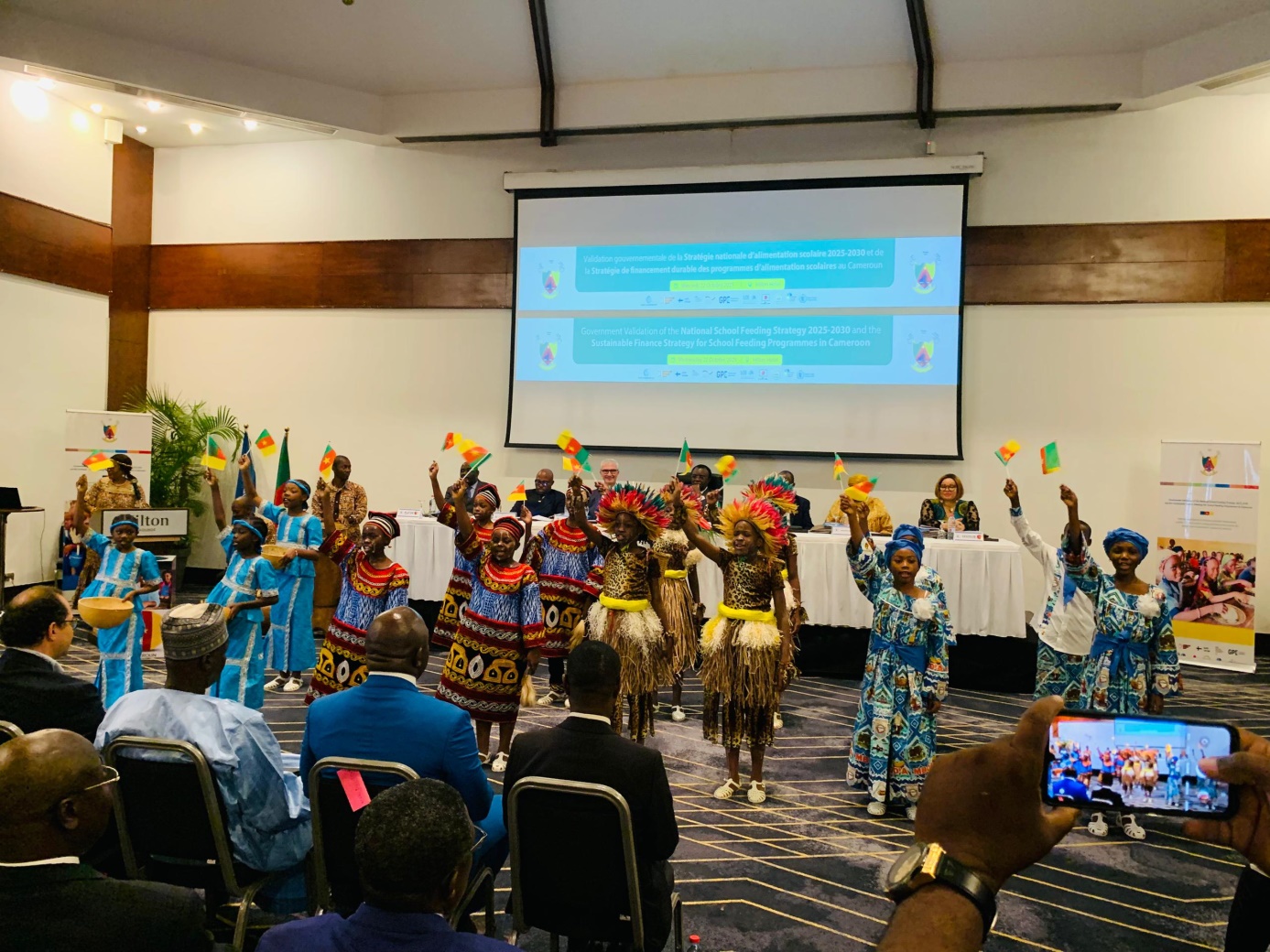Validated on October 22, 2025, in Yaounde, the National School Feeding Strategy 2025-2026 is built on five pillars, expansion of school canteens, improvement of academic performance, support for local production, inter-ministerial coordination, and integration of schools into development plans.
The Cameroonian government has taken a decisive step in the fight against child malnutrition and the promotion of inclusive education. In the presence of the Minister of Women and Family, technical and financial partners including the World Food Programme (WFP), Nascent Solutions, and the World Bank, the Ministry of Basic Education presented and validated its National School Feeding Strategy during an official ceremony held at the Hilton Hotel in Yaounde.
Data collected as part of the strategy confirms a strong correlation between school feeding and academic results. Through school canteens and several emergency programs, notably PULCCA and inter-institutional initiatives against malnutrition, nearly 371,000 students have been covered in six priority regions: the North, Far North, Adamawa, East, North-West, and South-West.
These actions have significantly improved enrollment, retention, and completion rates, with measurable positive effects on the performance of beneficiary students. Today, more than 444 schools across the country already benefit from a school feeding program.
Seven Major Objectives for Sustainable Transformation
The 2025-2026 strategy is based on seven key objectives: extend program coverage to the most vulnerable regions; provide healthy, balanced school meals tailored to nutritional needs; equip schools with adequate infrastructure for sustainable feeding; stimulate local agricultural production while adhering to agro-ecological standards; strengthen the existing legal and institutional framework; establish an inter-ministerial coordination structure; and integrate school feeding into local development plans, in line with decentralization policy.
A Clear Vision for 2030
The national vision is ambitious: to guarantee every school aged child a balanced, healthy, and nutritious meal by 2030. To achieve this, the government is banking on local agricultural products, promoting “Made in Cameroon” products, enhancing food security, and strengthening local value chains.
This approach fully aligns with the guidelines of the National Development Strategy 2030, SND30. The presentation also unveiled the Sustainable School Feeding Financing Strategy. The numbers speak for themselves: in 2025, only 170,890 students, or less than 3% of school-aged children, benefit from the program.
The goal is to reach at least 1,000,000 students by 2030, representing an annual growth rate of 55.6%. To date, less than 17% of this target has been achieved. Significant resources must be mobilized, and partnerships strengthened to ensure stable and sustainable financing for the National School Feeding Program (PNAS) 2026-2030.
By Michelle MBESSA

